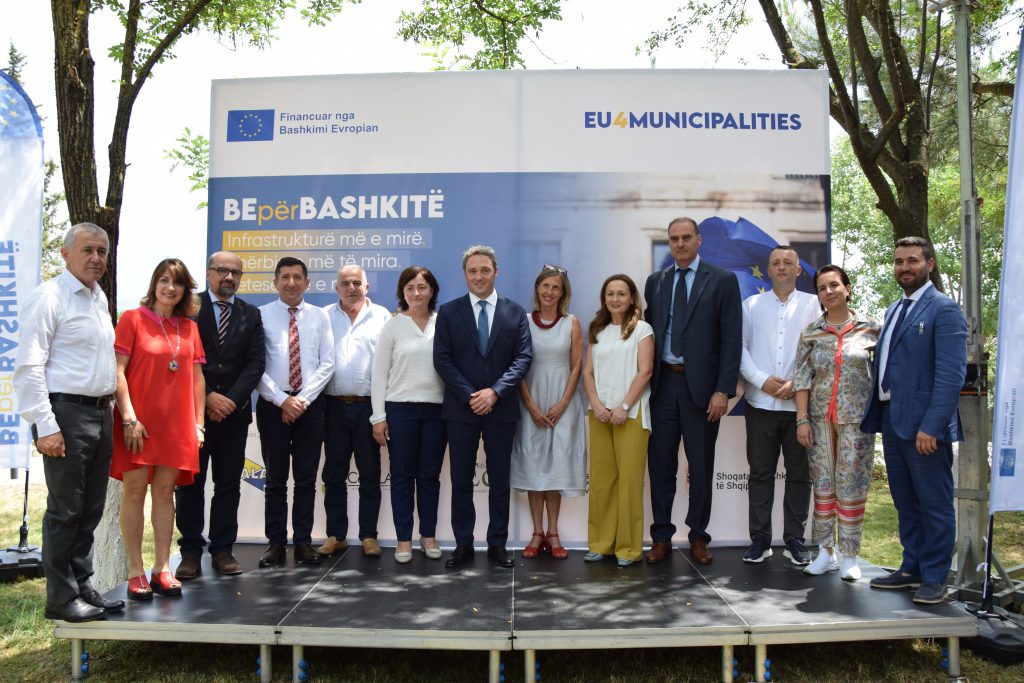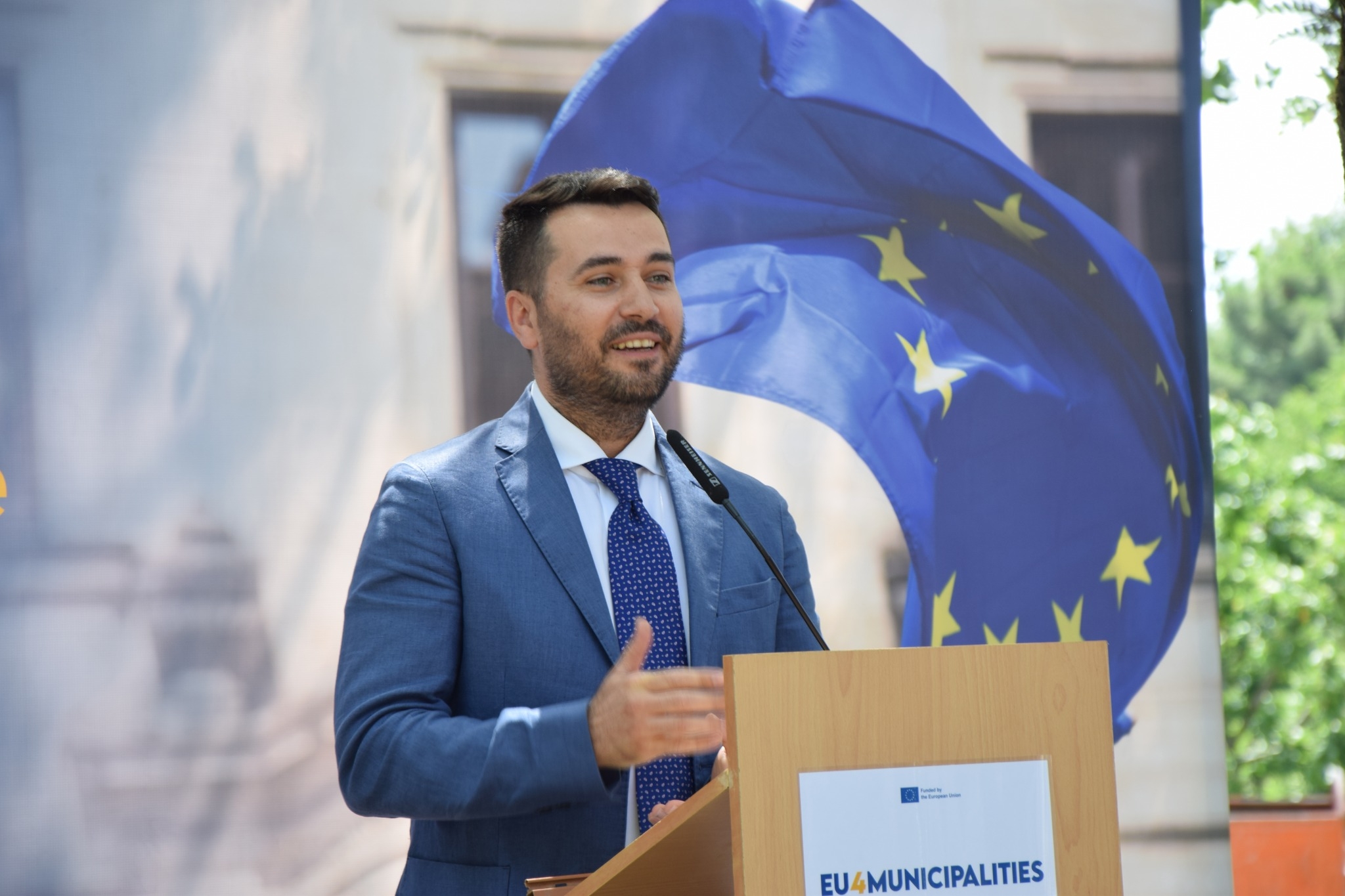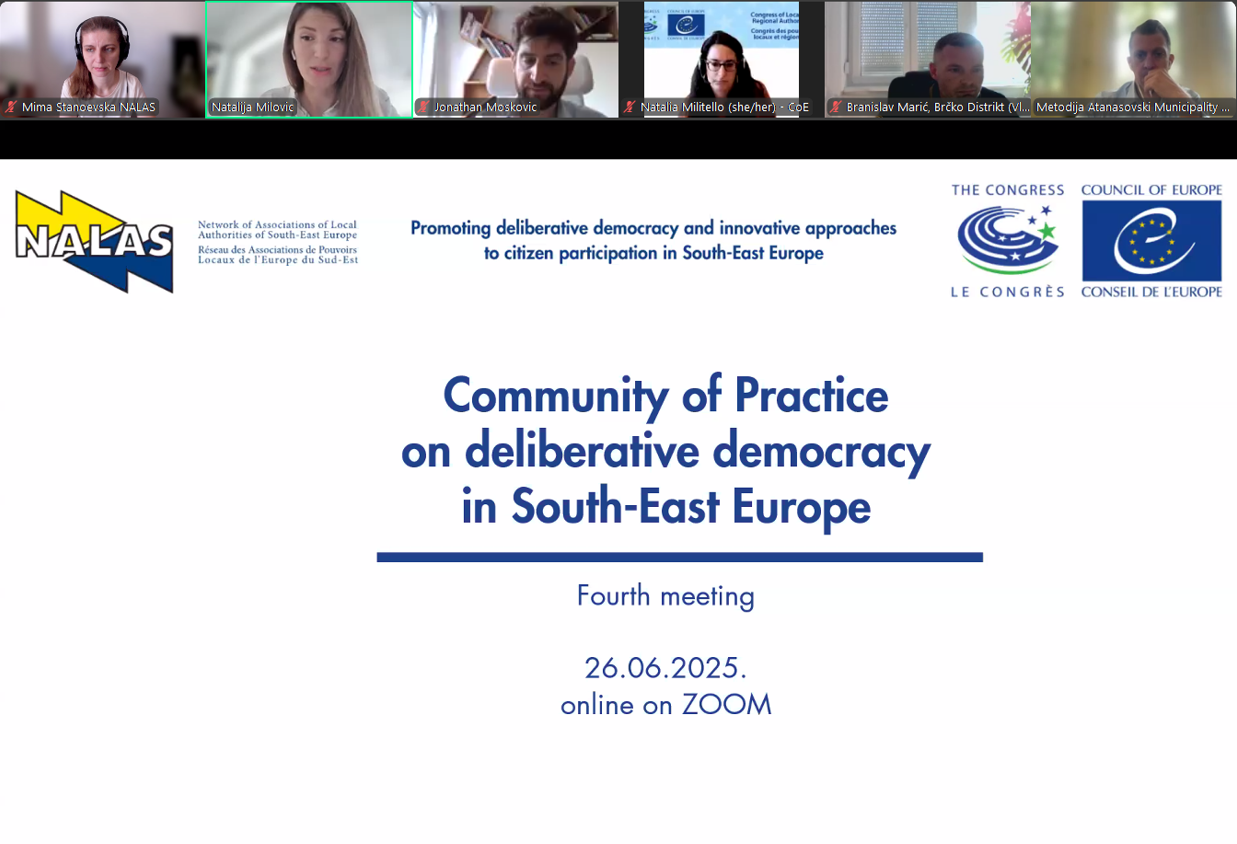
Albania is a country with a population of around 2.8 million people, and it faces numerous challenges related to governance and service delivery. Despite significant progress made over the past decades, Albania’s public institutions continue to face challenges related to accountability, transparency, and efficiency. The decentralization process initiated in the country in 2014 aimed to address some of these challenges by transferring more power and responsibilities from the central government to local authorities. However, the decentralization process has faced various obstacles, including a lack of resources and capacity at the local level.
To support Albania in overcoming these challenges, among others, the EU4Municipalities project was launched in 2021. The purpose of the project is to support the development potential of municipalities and improve the socio-economic and environmental conditions of local communities in Albania. The project aims to address the main problems that affect the quality of life and economic prospects of the community by improving local public services and by aligning them with European standards. The project is being implemented by a consortium of partners led by NALAS a network of associations of local authorities of South East Europe and includes Non-Governmental Organisations Co-Plan Institute for Habitat Development, Eco Partners for Sustainable Development and NALAS’s members in Albania Association for Local Autonomy and the former Association of Albanian Municipalities.
Elton Stafa, the Team Leader for the EU4 Municipalities project at NALAS, highlights the project’s significant contribution to local governance. “The project’s necessity was recognized through meetings between EU Delegation representatives and municipal authorities in previous years, which indicates a bottom-up approach,” says Elton.
The project’s primary means of support for local governments is a grant scheme aimed at enhancing local public infrastructure, improving the quality of public services, implementing municipal strategic plans, and building local government capacities for EU fund management. In the first call for proposals launched in 2021, the project provided support to six municipalities through grants of up to €200.000. The second call, launched in 2022, extended support to additional 13 municipalities with grants ranging up to €50.000. The projects that received grants covered a range of areas, including local economic development, environmental protection, improvement of local public infrastructure and services, youth and community empowerment, and more. As of today, the project has signed 19 grant contracts amounting to 1.7 million € of EU contribution.

As part of its support on strenghtening the capacities of the municipalities the project has provided so far provided 15 training on project proposal preparation and grant managment to 200 municipal representatives. Entela Pinguli, the EU4Municipalities Deputy Team Leader considers this project as highly succesful. “The municipalites have a great interest on the EU4M grant scheme and the project’s approach, as they bring tangible resulsts. All in all, the EU4Municipalites has become an important element on overall development of Municipalities in Albania“, says Stafa.
As part of its effort to enhance the municipalities’ capabilities, the project deliveed 12 training sessions on project proposal preparation and grant managment, benefiting 490 municipal representatives. The capacity building copmponent is an integral part of the EU4Municipalities grant scheme. Entela Pinguli, the EU4Municipalities Deputy Team Leader regards this initiative as highly effective“ The municipalities have displayed a great interest in the project, and the implementing grant projects are expected to yield highly trangible outcomes, which improve municipal services and touches people’s lives.
Looking forward, the EU4 Municipalities project is expected to continue to play an important role in strengthening Local Governance for Better Service Delivery in Albania.
About the project: EU for Municipalities (EU4M) is a project funded by the European Union. It aims at fostering municipalities’ development potential and improving the socio-economic and environmental conditions of local communities in Albania. The “EU for Municipalities” project will support the development of local infrastructure by providing better public services and sustainable local economic development. The project will have a direct impact on improving the quality of life and prospects for Albanian citizens in their communities while it will help local governments strengthen their capacities for EU funds management.
This article was originally published on the website of WeBalkans.eu

